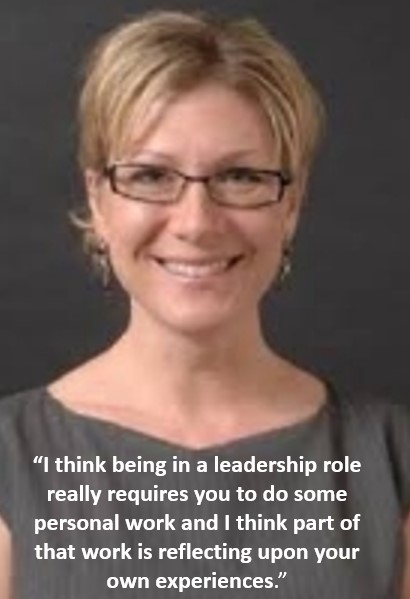You’ll likely be surprised, as I was, to learn the number of homeless youth present in a community like Montgomery County, Virginia. Two thriving universities welcome students and faculty from all over the world into small towns that sit comfortably among the Appalachian Mountains in an almost idyllic environment. In this setting, homeless and unaccompanied youth are almost “invisible” to most of us. Dr. Wendy Eckenrod makes us aware of the reality and shares her story that has led to the creation of the Eckenrod Foundation, a nonprofit working toward solutions for this highly vulnerable population.
WENDY’S HOMEGROWN PATCHWORK
Wendy’s childhood and adolescence were spent mostly in Miami, Florida where she was in the minority as a white child among many LatinX neighbors and friends. The ability to speak Spanish was a must in this vibrant and eclectic setting where she was raised primarily by her single father.
Despite being raised in this urban environment, Dr. Eckenrod calls Kipper Valley in Patrick County, Virginia on the border of North Carolina, her home. This is where her great grandmother was raised and where Wendy spent her summers growing up. It’s also where she relocated at the age of 19 after a period of homelessness that has greatly influenced her life’s path and passions.
The contrast between urban Miami and rural Patrick County was striking and served to nurture and develop Wendy’s observational skills and her awareness of cultural diversity from an early age. She witnessed racism and poverty and developed strong senses of both empathy and appreciation of diversity.
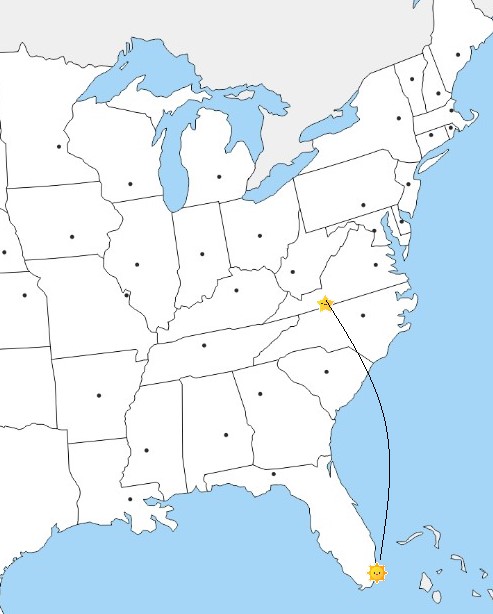
Wendy talks about the importance of her family and the tremendous influence her father has had on her life. Raising her mostly alone, she empathizes with the challenges her dad faced leading up to the incident when she was dismissed from her home for showing what he viewed as disrespect.
Homeless at age 17 as a result, Wendy’s nature as a good student and an athlete continued to serve her well. Surprisingly, she continued to attend school, do her homework, work a part time job and play sports.

My experience being homeless as a teenager is probably very ‘vanilla’ compared to what other people experience. I continued to go to school. I didn't know not to go to school. I didn't know that was an option.
Her resiliency from both “internal and external perspectives” served her well through this time. Definitions of homelessness vary from the universally understood “out on the street” to the “McKinney-Vento” definition that includes all students separated from their parents or legal guardians as “unaccompanied youth.”
This broader definition includes, not only youth and young adults who are on the streets or sleeping in cars, but those staying with friends, couch surfing, living in tents, or in buildings that are not “suitable or habitable”. By both definitions, Wendy was homeless for an extended period of time. Although she found a friend’s family to take her in, she started her homeless journey by sleeping in her car.
I didn't know where to go and I had a test the next day. So, I went to school. The doors of the school were unlocked, which is unheard of nowadays, but the school was open. I went in and I studied for my test. I ate dinner from a snack machine and went and slept in my car…I had nowhere to go…My mom lived in England at the time and we did not have a close relationship. I had no family members, no aunts, uncles, cousins, grandparents. I was homeless for quite a while and, eventually, went back home. And then when I was 19 , I moved to Virginia with my great grandmother.
Her relationship with her father has since healed and she says they are now able to laugh about the incident. Nevertheless, it left an indelible mark that she has turned into action to help other young people who leave home before adulthood for a myriad of unhappy reasons.
SOLUTION FOCUSED WENDY
Like many who’ve successfully overcome traumatic experiences in life, Wendy developed a great desire to help others. Her first-hand experience and her strong capacity for empathy and systemic thinking led her on a career path from school counselor to university professor. In both roles, she’s found opportunities to engage in some capacity around the issue of homelessness.
Her work in a rural high school gave her the opportunity to see poverty and homelessness more systemically. She believes this helped to positively shape her thinking.
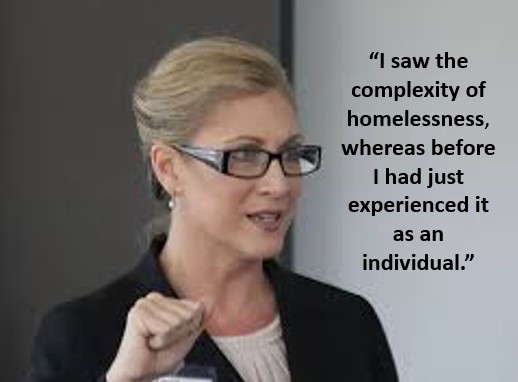
She became aware of the profound effects of financial hardships and family disillusionment on teens during a critical phase of their development. Family stresses, lack of acceptance, neglect and abuse (sometimes sexual) can all lead to homelessness when youth are forced out of the house. This may happen when they begin to fight back or when they begin to realize that they have the capacity to leave a bad situation.
The story of one student who revealed his sexual identity to her at school was particularly troubling.
He came out as gay and the next day he walked by, just popped his head in my office and said… I'm not gay anymore. And he just kept walking down the hall. And that was the last day that I ever saw him. When I called his house the next day because he was absent, his mom said, ‘Oh, I kicked him out.’ To me that is horrific. He's worthy of love and a good life.
Stories like this propelled her to want to make a difference for homeless youth in her community. Likewise, witnessing racism and experiences with discrimination as a woman drove her toward a strong desire to break down barriers and make the world more universally supportive and accessible. She knows that trust happens in the context of a “safe space” and a personal connection. She emphasizes this in the courses she teaches for the School of Education and Leadership at Radford University.
At first, she wasn’t sure that she should share her personal experience with homelessness with her students, but over time she began to realize the importance of doing so.
I think being in a leadership role really requires you to do some personal work and I think part of that work is reflecting upon your own experiences.
For this reason, she has begun to share her own story at appropriate times to help others understand the breadth and depth of the problem. Stories connect us and create empathy. They can also motivate us and orient us toward change.
With this intention, Wendy creates opportunities for her human development students and graduate research students to think deeply about the issue of homelessness. Field trips to a nearby day program allow students to interact with people without stable shelter.
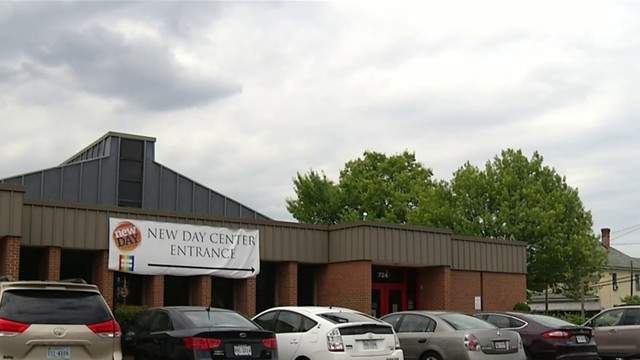
They are also able to see available resources including shower facilities, food, entertainment spaces and beds for resting during the day. They also see what is missing – like overnight accommodations.
Wendy has been deeply moved when, after such a visit, students go back to volunteer at the shelter on their own time. Others have taken the initiative to create campus-wide drives for things like underwear, socks and other clothing. This tells her that her students are motivated to act in the service of others.
That was really profound for me to be a part of somebody else's growth and learning and then watching them really take their own steps in helping the community.
She has plans to include the homeless issue as a research topic for an upcoming graduate course as well. Students will choose a subset of the homeless population and a research question to study. They will present their findings at a community forum at the end of the semester that will include civic leaders and stakeholders. The data will be used both to raise awareness and to guide decision-making for action on homelessness throughout the region. It’s hoped that this data will also be useful when seeking funds for the Eckenrod Foundation that she has created in honor of her father.
CHANGEMAKER WENDY
Wendy created the Eckenrod Foundation to raise awareness and to address the needs of homeless and unaccompanied youth in her community. To start, she has gathered a diverse board of individuals from across local sectors to provide perspective, input and support for the endeavor.
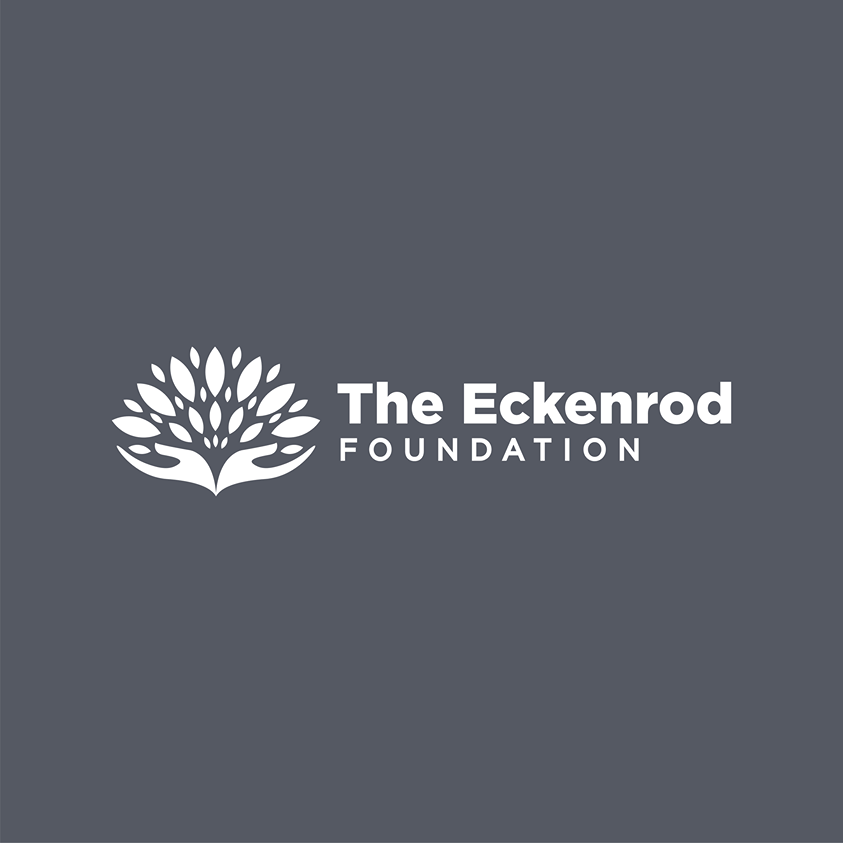
The Eckenrod Foundation will provide emergency assistance, transitional housing, mental and physical health services and support for continued schooling and employment where appropriate. The goal is to have a home or apartment available in each of the four school districts within Montgomery County.
One model they are exploring includes a masters-level mental health professional who can serve as both a “house parent” and a case worker employed to provide counseling and to facilitate access to other healthcare as well as keep them in school and otherwise productive.
Because the population involves minors, there are legal requirements for supervision. At the same time,
a lot of homeless youth are incredibly independent and some of the rules that would be appropriate for kids that haven't had to fend for themselves just don't make sense.
For youth who’ve been living successfully on their own, but are under the age of 18, it can sometimes be most appropriate for them to seek emancipation to be legally declared an adult. In that case, the Eckenrod Foundation would consider helping them to go through that process.
Of course, all of these ambitious initiatives take funding. Finding financial support for a new initiative can be tedious and time consuming.
It’s challenging to be patient when you see students and families who are really struggling and have needs so that that's a frustration, but it's just part of making things happen. It takes longer than you'd like.
Knowing this, The Eckenrod Foundation is seeking grant funding as well as partnerships with local businesses and traditional fundraising events to bring in donors and benefactors. The goal is to become sustainable and self-supporting over time because it is well understood that the “soft money” of grants cannot be relied upon for the long term.
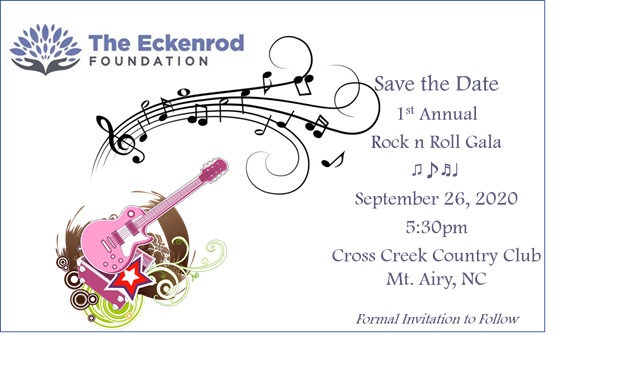
The board has plans for a gala in the works and are making plans for other events to raise both money and awareness.
Awareness is needed at all levels. Most of us are unaware that there are currently 261 homeless public school students in Montgomery County, 56 of those are high school students. Even the teachers who see these students regularly in their classrooms are often unaware of their living situation. Wendy knows this from firsthand experience.
My teachers didn’t know that I was homeless . My coaches didn't know that I was homeless and I didn't know to reach out for help… I just kept doing what I was doing and having the same academic expectations.
This makes training teachers of utmost importance. When they know to look for signs of change in their students and the importance of building honest and open relationships that support communication, they are better positioned to provide support when it is needed.
Teachers who understand the challenges and, oftentimes, the amazing resiliency, among students living on their own are more likely to create options and flexibility when students need it most.
Vulnerable populations often find it difficult to ask for help. Wendy can attest to this. She challenges us to think about what we might do differently… If I were a teacher and found out that my student had slept in her car last night and had a poptart for dinner?”
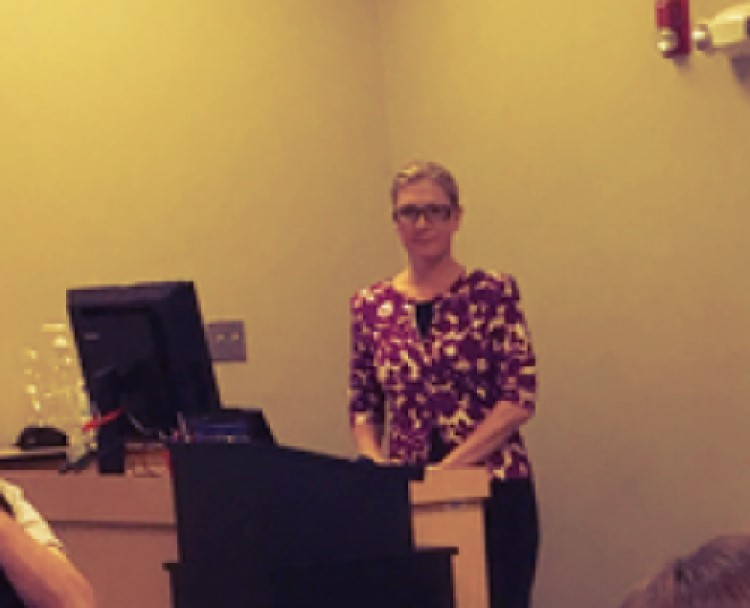
She encourages teachers to move beyond their assumptions and talk with/listen to students to find out what’s happening if they are late with an assignment or they miss school. There has been some research to indicate that students are confused when their teachers react unsympathetically when they are doing all they can to simply survive.
Teachers need to know about the statistics on homelessness that indicate the prevalence of abuse and neglect among these students. In fact, forty percent of homeless youth identify as LGBTQ. When they come out at home, unaccepting parents can drive them away. Layers of trauma and feelings of abandonment can stand in the way of a students’ cognitive development and academic performance.

A readiness to provide empathy, understanding, flexibility and resource referrals must become a part of every skillful teacher's toolbox.
Of course, Wendy’s ultimate goal would be to prevent homelessness in the first place. She believes that child abuse prevention is critical in doing so. It follows that in order to prevent child abuse, parents need the skills for parenting their children at every stage of their development, including the challenging teen years.
How you parent a one month old is different than how you parent an 18 month old. And that's different than how you parent a seven year old and then a 16 year old… It is a constant evolution of parenting skills.
With this in mind, Wendy hopes to hold monthly parenting classes to help parents develop the skills needed to navigate challenging situations with their teens. Ultimately, by strengthening families, many homeless situations could be prevented.
Her upcoming book Under Construction shares this goal of strengthening parents and families. The book focuses on helping parents recognize teenage milestones in order to assist their children in navigating those milestones successfully.
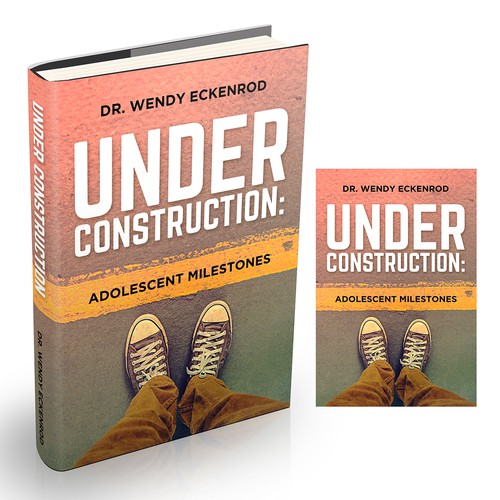
Wendy uses her own experiences as a teen and as a parent of teenagers, as well as her extensive training in counseling and human development, to inform her work. This is made abundantly clear in her teaching, her writing and her work with the Eckenrod Foundation.
As I’m sure you can see, Dr. Eckenrod’s story is another powerful example of how changemakers are often created when they find ways to overcome their own challenges. Sharing their perspectives and successes with others gives us all an opportunity to learn and to use that learning to create the lives we all deserve.
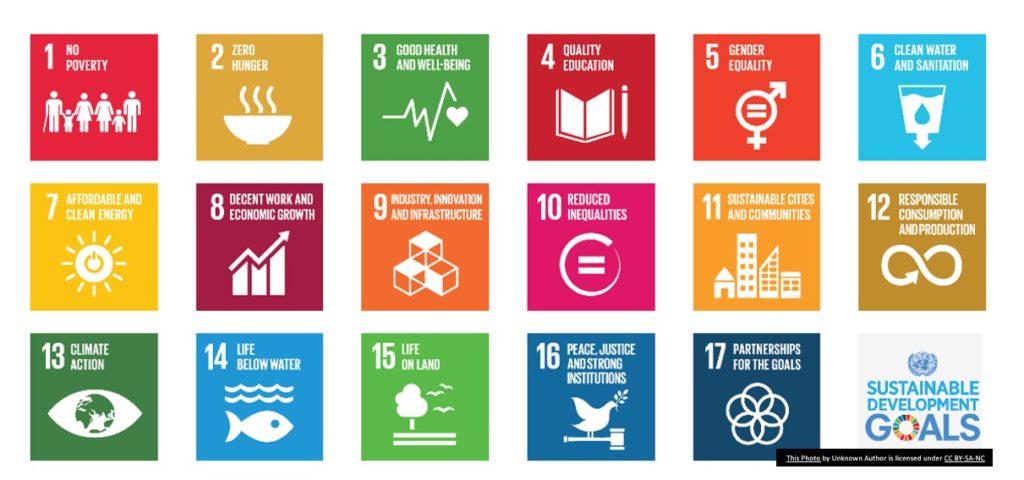
Although we didn’t talk about the United Nations Sustainable Development Goals directly in our conversation, you can see how Wendy is working on #3 Good Health and Well-being, #4 Quality Education, #10 Reduced Inequalities, #11 Sustainable Cities and Communities and #17 Partnerships for the Goals.
Do you see others of the Global Goals in her work? What about you? What are you doing to make change in your own community and the world? We’d love to hear from you at the link below.
Podcast: Play in new window | Download
Subscribe: Spotify | iHeartRadio | Email | TuneIn | Deezer | RSS | More

